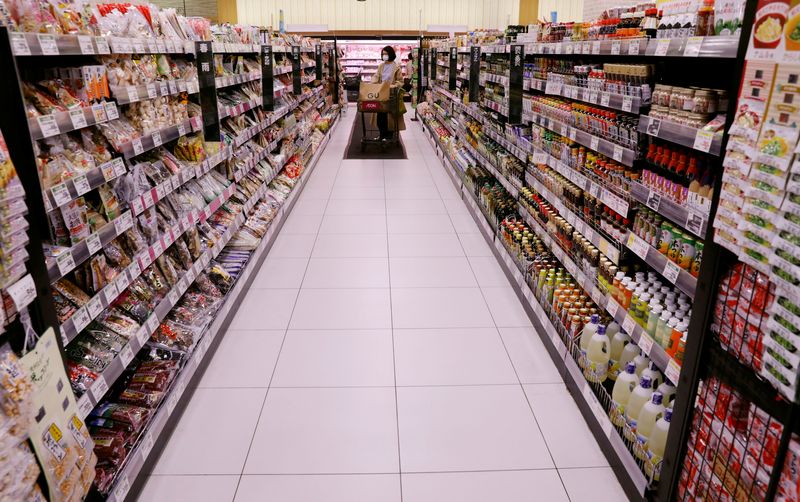By Daniel Leussink
TOKYO (Reuters) -Japan's household spending posted a surprise drop in May, falling for the third consecutive month as the global chip shortage hurt car sales in a worrying sign for the outlook of the world's third-largest economy.
Households are also facing pressure from the yen's sharp decline that is pushing up prices of imported fuel and food at a time when consumer confidence still has to fully shake off the drag of the coronavirus pandemic.
Spending slipped 0.5% in May from a year earlier, government data showed on Friday, dragged down by lower expenditure on vegetables as well as cars, where supplies have been hit by chip shortages and supply chain disruption.
The data, which was much weaker than the median estimate for a 2.1% increase in a Reuters poll, showed people dialled back on spending on fish and vegetables to eat at home, while loosening their purse-strings on services such as eating out.
"The survey shows that consumer spending is on a declining trend," said Takeshi Minami, chief economist at Norinchukin Research Institute.
"While it may not be fully capturing actual spending, there's a good likelihood that rising prices are suppressing consumption."
Spending also dropped from the previous month, falling 1.9%, weaker than a forecast 0.8% rise.
Policymakers have been worried about growing pressure on households which are facing surging prices of food and other daily essentials as well as higher costs of utilities such as electricity.
Elderly people such as 76-year-old Mieko Inoue, a pensioner who lives by herself in Tokyo, pointed to Russia's military campaign in Ukraine as leading to the higher cost of goods in Japan, saying the government is not to blame.
"I was already refraining from buying clothes," Inoue told Reuters on Wednesday, adding she remained hesitant to eat out with friends out of fear of COVID-19.
Her case shows it is likely to take time for consumer activity and spending in Japan to fully recover to their levels seen before the coronavirus pandemic.
Spending on eating out remained 17.3% below levels seen in May 2019 before the pandemic, the data showed.
"Infections are on the rise again," said Taro Saito, executive research fellow at NLI Research Institute.
"The main problem is whether there will be some kind of new restrictions on activity."

Japan's economy is projected to rebound on stronger consumption in the second quarter following contraction in January-March.
But risks such as the hit manufacturers are taking from China's COVID-19 curbs, pressure from high raw material prices and the risk of another flare-up in coronavirus infections at home are clouding the economic outlook.